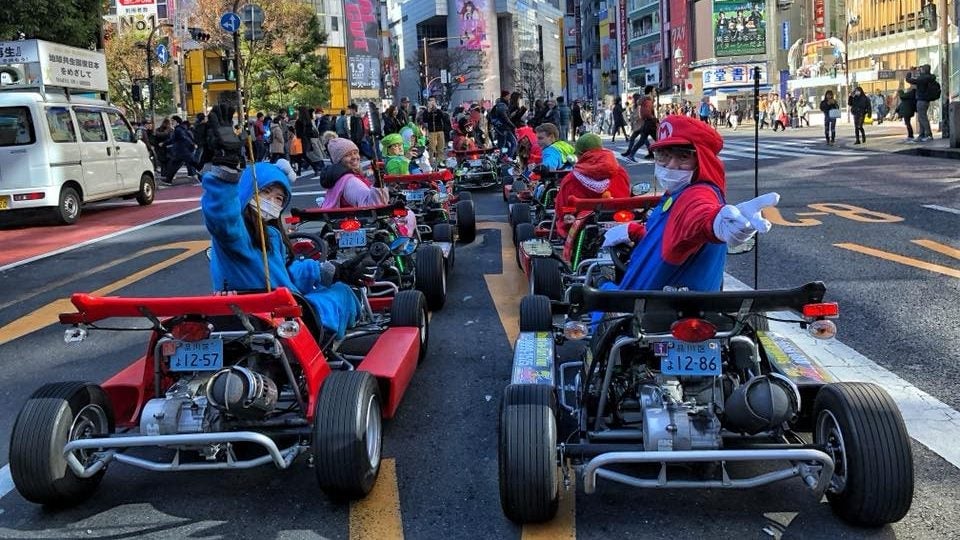Foreigners dressed up as Mario and Luigi are a menace on Japan’s roads
People dressed up as Super Mario characters whizzing around the streets of Tokyo in go-karts are a common sight. They’re also a headache for Japanese drivers and police.


People dressed up as Super Mario characters whizzing around the streets of Tokyo in go-karts are a common sight. They’re also a headache for Japanese drivers and police.
A recent accident, in which a Taiwanese driver was charged with a hit-and-run on Feb. 23 after colliding with a cyclist, has renewed calls to ban the activity. Authorities in Japan have previously sounded the alarm over the danger of these go-karts, which are operated (paywall) by a Tokyo-based company called MariCAR. The activity is also offered in Yokohama, Osaka, and Okinawa.
In December, the transport ministry enforced safety rules for these go-karts, such as mandatory seat belts and taillights. Currently drivers only need a valid Japanese or international driving license to be allowed to drive a go-kart.
According to Japanese media reports (link in Japanese), citing figures from the Tokyo metropolitan police this week, of the 50 accidents involving go-karts recorded from late March last year to Feb. 26, 86% have involved foreigners. Most of them were from the US, followed by South Korea.
An undated notice on MariCAR’s website says that the company is providing its services as usual, and that “MariCAR is fully complied through local governing laws in Japan” (sic).
MariCAR is currently in the middle of an intellectual-property legal tussle (paywall) with Nintendo, the creator of the Mario Kart video game and Super Mario characters. MariCAR notes on its website that it has no relation to Nintendo, and says in a warning to drivers not to throw banana peels or turtle shells at each other.
The increase in accidents caused by foreigners driving go-karts comes as Japan more broadly comes to terms with the rapidly growing number of tourists visiting the country and the inconveniences and problems that can bring. Last year, a record 28.7 million people visited the country—the government has a target for 40 million visitors by 2020, when Tokyo will host the Olympics.